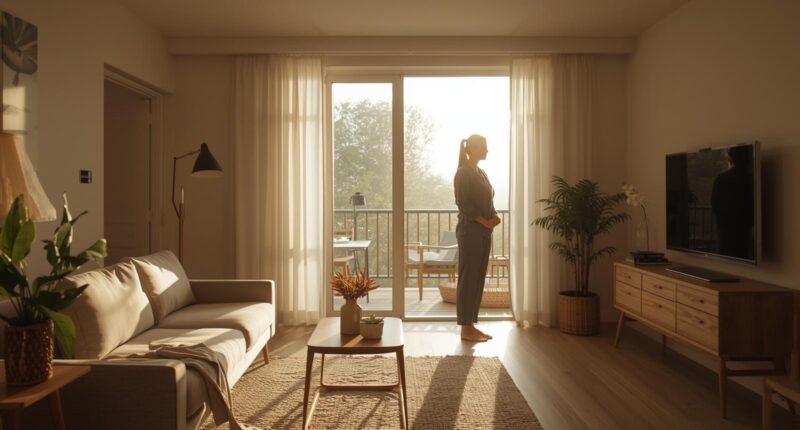How Real Estate Shapes Your Daily Routine and Wellbeing
Introduction
Most people think of Real Estate simply as a financial investment — buying, selling, or renting property. But few realize that real estate has a much deeper impact: it shapes the way we live, think, and feel every single day.
From how long you commute to how relaxed you feel at home, your real estate choices influence your productivity, relationships, and even your physical health. In this article, we’ll explore how Real Estate affects daily routines and overall wellbeing — and how smart choices can lead to a happier, healthier lifestyle.
What Is the Relationship Between Real Estate and Wellbeing?
Real Estate is more than land and buildings — it’s the foundation of your environment. The type of home you choose, its location, and even its layout all influence your quality of life.
Key aspects that connect real estate to wellbeing:
-
Comfort and safety
-
Access to green spaces
-
Proximity to work and schools
-
Community and social engagement
-
Energy efficiency and air quality
👉 Resource: Investopedia’s Guide to Real Estate and Lifestyle Value
How Real Estate Affects Your Daily Routine
1. Commute and Time Management
Where your home is located determines how much time you spend commuting. A long commute can increase stress and reduce family time, while a nearby residence promotes work-life balance.
2. Access to Amenities
Properties close to grocery stores, gyms, and parks save time and encourage healthy habits.
3. Morning and Evening Routines
The design of your home can affect your mood. Natural lighting, space organization, and ventilation improve daily energy and focus.
4. Productivity at Home
With remote work on the rise, Real Estate with dedicated office space has become a wellbeing essential. A calm, ergonomic space boosts performance and mental health.
How Real Estate Impacts Mental and Physical Health
-
Nature Access – Living near green areas lowers stress and anxiety levels.
-
Air Quality – Well-ventilated homes with energy-efficient systems promote physical health.
-
Safety and Security – Gated communities and smart-home tech create peace of mind.
-
Community Interaction – Neighborhoods that promote connection and inclusivity enhance happiness and longevity.
A well-planned Real Estate environment doesn’t just offer comfort — it contributes directly to your emotional balance.
Table — How Real Estate Affects Wellbeing
| Real Estate Factor | Daily Routine Impact | Wellbeing Benefit |
|---|---|---|
| Location (Proximity to Work) | Reduces commute time | Lowers stress & increases free time |
| Home Design & Space Layout | Improves comfort & organization | Boosts mental clarity |
| Access to Green Areas | Encourages outdoor activity | Improves mood & physical fitness |
| Neighborhood Safety | Provides security & confidence | Reduces anxiety |
| Air & Light Quality | Better sleep & energy levels | Enhances overall health |
| Community Environment | Promotes social interaction | Builds sense of belonging |
This table highlights how the spaces we choose directly influence our wellbeing and daily behavior.
Choosing Real Estate That Enhances Your Lifestyle
When selecting a property, look beyond price and size. Evaluate how it supports your routine and emotional health.
Key Questions to Ask:
-
Does this home make daily tasks easier?
-
Is it located near work, schools, or parks?
-
Does it have natural lighting and ventilation?
-
Are the neighbors and community aligned with your values?
👉 Link: Read our related guide Family-Friendly Living: Best Real Estate Options for Growing Families to see how families can choose properties that nurture comfort and happiness.
Real Estate Trends That Promote Wellbeing
1. Sustainable and Eco-Friendly Homes
Developers now focus on green real estate with solar panels, water recycling, and natural materials to promote health and sustainability.
2. Smart Homes for Daily Efficiency
Smart-home systems automate lighting, temperature, and security — improving convenience and reducing stress.
3. Mixed-Use Developments
Modern Real Estate projects combine residential, commercial, and recreational spaces for an all-in-one lifestyle experience.
4. Wellness-Centric Communities
Communities with gyms, meditation spaces, and organic food access are becoming popular for those prioritizing holistic wellbeing.
Table — Comparing Traditional Homes vs. Wellness-Focused Real Estate
| Feature | Traditional Homes | Wellness-Focused Real Estate |
|---|---|---|
| Energy Efficiency | Basic insulation | Smart energy & solar systems |
| Access to Nature | Limited | Integrated green zones |
| Indoor Air Quality | Standard ventilation | HEPA filtration & airflow tech |
| Technology Integration | Minimal | Smart-home automation |
| Community Facilities | Basic clubhouse | Wellness & fitness centers |
Investing in wellness-oriented properties provides both lifestyle and long-term value benefits.
The Financial Side of Wellbeing
A property that improves your daily routine also supports long-term financial stability. Homes in health-focused communities often appreciate faster because they meet the modern buyer’s demand for comfort, sustainability, and balance.
Benefits include:
-
Higher resale value
-
Reduced healthcare costs due to a healthier lifestyle
-
Lower energy and maintenance expenses
-
Improved work-life balance leading to productivity gains
How to Start Shaping Your Life Through Real Estate
-
Assess Your Priorities: Identify what matters most — proximity, safety, or eco-design.
-
Do Market Research: Study neighborhoods that support your desired lifestyle.
-
Consult Experts: Work with real estate agents who understand wellbeing-driven housing.
-
Think Long-Term: Choose homes that adapt to future family or career changes.
By aligning real estate decisions with your values and habits, you create a lifestyle that enhances your physical, emotional, and financial wellbeing.
Final Thoughts
Real Estate isn’t just about walls and roofs — it’s the space where life happens. The right property influences your routines, your health, and your happiness.
In 2025 and beyond, the best investments will be those that offer more than shelter — they’ll provide wellness, balance, and purpose. By being intentional in your real estate choices, you can design a home that not only meets your needs but also shapes a healthier, more fulfilling daily life.









